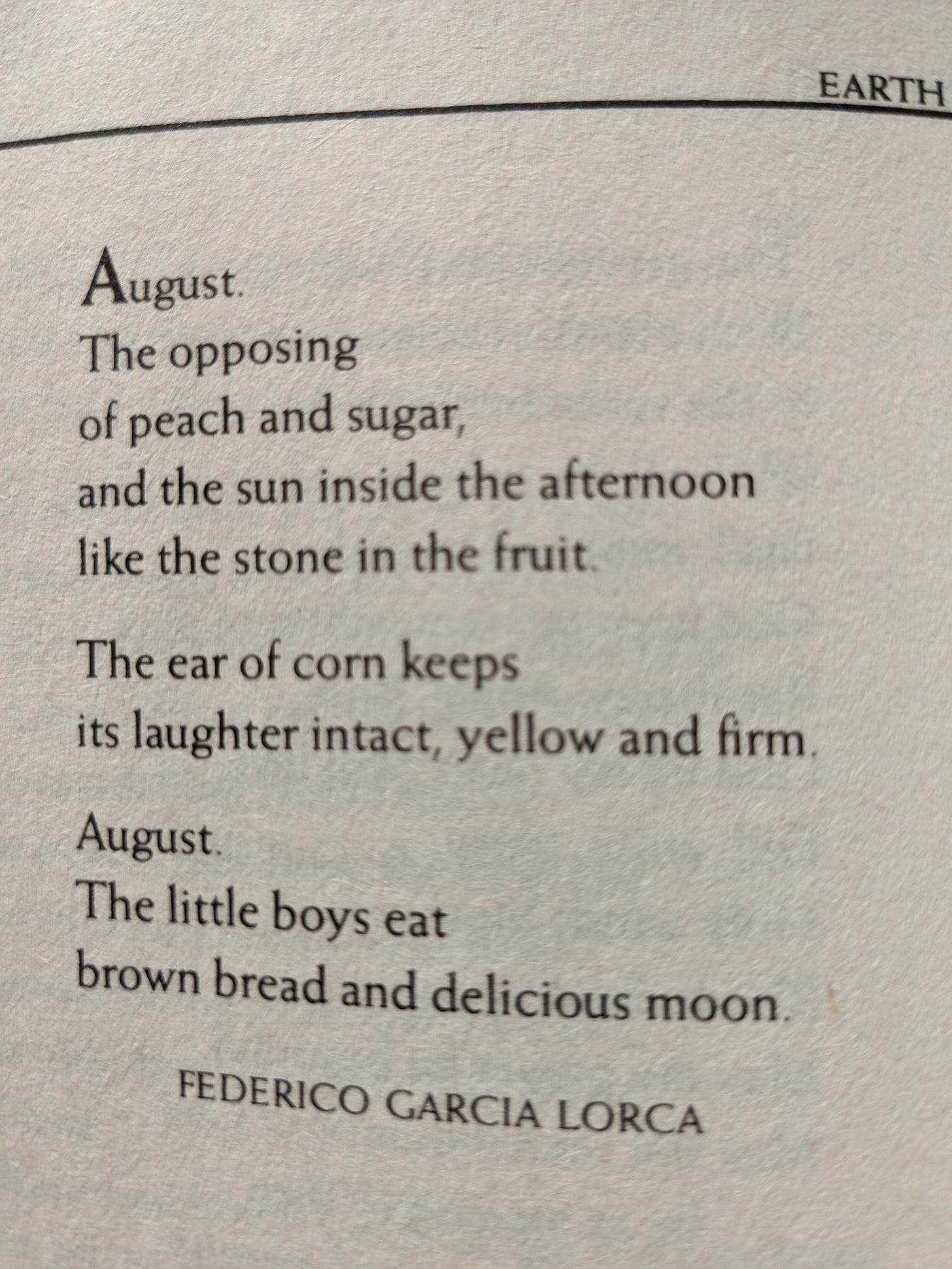We are nearing the end of our month-long dance with dear Earth. If you’re new here and you’d like to catch up on the daily emails, you can do so here. If you’d like to hear how my house-hunting is going (argh) I wrote about it on our Buddhist newsletter here. Thanks for being here!
August.
The opposing
of peaches and sugar,
and the sun inside the evening
like the stone in a fruit.
The ear of corn holds intact
its hard yellow laughter.
August.
Children eat
dark bread and tasty moon.
~ Federico Garcia Lorca
I am fascinated by the two different translations of this poem - one above and one below. ‘Dark bread’ has such a different feel from ‘brown bread’. Are there just little boys eating the bread, or are there girls there too? If not, where are they? How does ‘the opposing of peaches and sugar’ read in the language of the poet?
Conveying meaning through language isn’t straightforward, and neither (I would suggest) is anything else. When we have an encounter with a poem, or another person, or a place, we will be seeing the other through our own filters - our family history, the soup of culture we were raised in, and all the protection, preferences and peccadilloes we’ve collected along the way.
When we do encounter an other, we have an opportunity to examine these biases. Rather than making assumptions that suit us (or that don’t), what is it that the world is actually trying to tell us?
In your encounter with the outside today, be curious about how many filters there are between you and it. If you could peel some of them aside, what might you see or know afresh?
Go gently,
Satya 💚
Featured piece:
is one of my very favourite writers - there’s something about the combination of her luscious word-craft, her radical honesty and her Zen-like approach to the world that feeds me like nothing else. Do buy her book. And do subscribe to her Substack, ! So, what if…..







I am always fascinated by translations and translators. I find the skill mystifying. I’ve some capability to read native versions but only enough to learn what I don’t know. Many times Poets like Lorca have had their work tweaked by publishers that write between the author’s lines and then don’t like what they read. It would be interesting to know if changes were made in publishing Spanish or in translation.
I love this. The poem, the concept of how we see things through our lenses, and how that changes, which of course is not only by actual translations, but through our various responses in each moment. I'm often disappointed with translations, but these satisfy me. If I sense the intended layers of meaning and I feel it has asked me to sit with it, the slow breath I take in lets me know I have received at least some of the poet's intention. Thank you for sharing this.